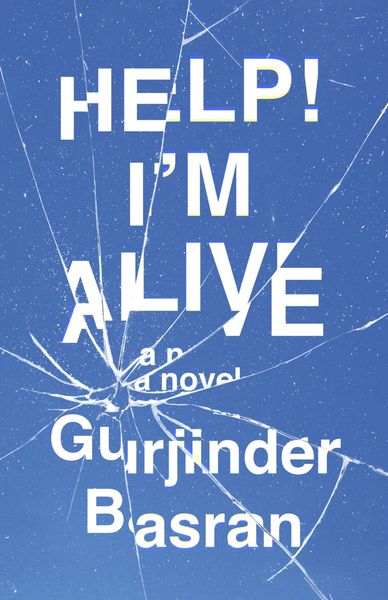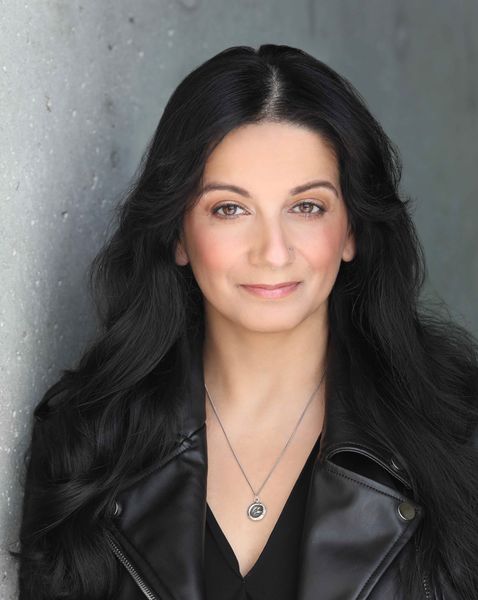Book Therapy: Help! I’m Alive
By Stacey May Fowles
“Usually the isolation is a result of some life trauma. Does your brother have trauma?”
“Fuck, I don’t know. Who doesn’t have trauma?”
—Gurjinder Basran, Help! I’m Alive
Lately I can’t stop thinking about how everyone is not okay.
I know that’s a strange thought to have in the wake of the general, celebratory reemergence that has happened over the last few months. Yes, something has definitely shifted—the weather changed, mandates dropped, and while there has not necessarily been a full-fledged “return to normal” (we’re in another wave, after all) a very different energy is all around us.
There have been dinner reservations, backyard get-togethers, and museum visits. People have started shaking hands, buying tickets to shows, and boarding planes. Even though I have always been on the more cautious end of pandemic things, I went to a baseball game attended by tens of thousands of other people. What’s more, after running into a friend I hadn’t seen for years, I actually threw my arms around her without even thinking about it.
More than once I’ve had a feeling that can only be described as being introduced to my former self—(cautiously) doing the things I used to love and thinking “oh hey there, I remember you.” Wariness aside, it’s a full-body sigh of relief to be able to sit across a table from a person you care about, to cheer for your favourite team in a stadium, to take your kid to a birthday party, to do the things that really make you feel like yourself.
And yet, with all this gleeful reconnection, a nagging discomfort remains, a whispered message that things are not as “normal” as we would like them to be. For me it shows up in the way I struggle in social situations, in the nudge of panic I feel when there are too many people around, in the way I still reflexively step into the street to give someone space on the sidewalk.
Many are not living in “post-pandemic,” but in “not quite right,” haunted by the last few years, consumed by caution every time they try to step out of their comfort zone. Guards have been let down, people are reconnecting, and it’s okay to acknowledge it can all be kind of terrifying. Yes, there is a renewed sense of openness worthy of celebration. Yes, I love being back in the world. But I personally still feel that low hum of anxiety in my interactions, as if I am still that person obsessively checking daily case counts, haunted by the months and months of being denied the things and people I care about.
Even with all these expectations that we just snap out of it and jump back in, it’s really, really hard. There is grief that lingers, a worry that gains could be temporary, that there’s so much further to go, and so much more healing to do.
“Normal is not me and it’s not you…”
Written by Gurjinder Basran, Help! I’m Alive is a novel explores the aftermath of a teen’s suicide through the eyes of four very different characters—Ash, Winona, Anik, and Pavan. Beginning with a video of Jay’s inexplicable death being shared on social media, the reader is gradually introduced to the community he left behind, witnessing how each tries to grapple with loss in their own way.
Your CanLit News
Subscribe to Open Book’s newsletter to get local book events, literary content, writing tips, and more in your inbox
In one particularly memorable scene, students at Jay’s high school are invited to the gymnasium for a half day assembly, designed to help them process the tragedy and “break down the walls!” A well-meaning—if out of touch—organization hosts the event, aiming “to get people out of their bubble, to get people talking, to ‘build community.’” Some students are understandably dismissive, others cynical or skeptical, others still warily hopeful that the effort will help.
The sentiments shared can be cringe-worthy, typical of what you’d find when earnest adults talk to young people about how they’re feeling. But one exercise in particular illuminates some of the very issues we’ve carried since the last wave waned, when spring warmed us and summer came blazing in with a new way of living.
“Step forward if you feel sad at least once a day.”
“Step forward if you feel anxious.”
“Step forward if you hate something about yourself.”
“Step forward if you’ve ever thought of or known someone who harmed themselves.”
When the exercise is complete the students are asked to look around and really see each other. Some cry and hug, offering consolation. Others stand “with their arms crossed, their faces in awkward twists.” The scene acts as a shared acknowledgment that something is very much not okay, something that is not necessarily being discussed, but is happening to all of them.
Moving beyond cliches about resilience or stages of grief, Help! I’m Alive takes a thoughtful look at both literal and figurative journeys of “getting better.” The book offers moments of loneliness, isolation, regret, and anxiety, authentically explored in ways both affirming and reassuring. Perhaps most vitally, Basran doesn’t rely on tidy resolution or even explanation to make larger points. There is no “getting over it” here—instead the narrative assures us that coping comes in varied forms, and that it certainly doesn’t need to look a certain way to be valid.
In detailing some of the hardest parts of the human experience, Help! I’m Alive doesn’t shy away from darkness, and yet somehow, with searing honesty, delivers genuine hope.
“Normal is not me and it’s not you…”
***
I definitely have moments where I wonder why can’t I just go ahead and enjoy the so-called “back to normal.” Why can’t I relax, let my guard down, and not be so worried about what might happen? But then I remember that our preferred coping skills are learned via trial and error, and that we need to move forward at our own pace.
To say that we have all endured hard things over the last few years would be an understatement. In fact, many are still enduring those hard things, whether related to physical or mental health, financial stability, or very real grief. The losses are personally varied and collectively immeasurable, and no live show or baseball game or dinner reservation is going to instantly repair that. We are walking around wounded, still very much aware of risk while trying really hard to have a good time—all without having fully processed the past.
I mean, given all that, of course everyone is not okay.
Help! I’m Alive acts as a generous reminder that we deal with what has happened in our own ways. While there may be forces at work that will push us to move on, people who ask us why we can’t just enjoy ourselves, we need the space and support to work through all that we have endured.
And we won’t be okay until we do.
Book Therapy is a monthly column about how books have the capacity to help, heal, and change our lives for the better.
The views expressed by Open Book columnists are those held by the authors and do not necessarily reflect the views of Open Book.
Stacey May Fowles is an award-winning journalist, novelist, and essayist whose bylines include The Globe and Mail, The National Post, BuzzFeed, Elle, Toronto Life, The Walrus, Vice, Hazlitt, Quill and Quire, and others. She is the author of the bestselling non-fiction collection Baseball Life Advice (McClelland and Stewart), and the co-editor of the recent anthology Whatever Gets You Through (Greystone).





